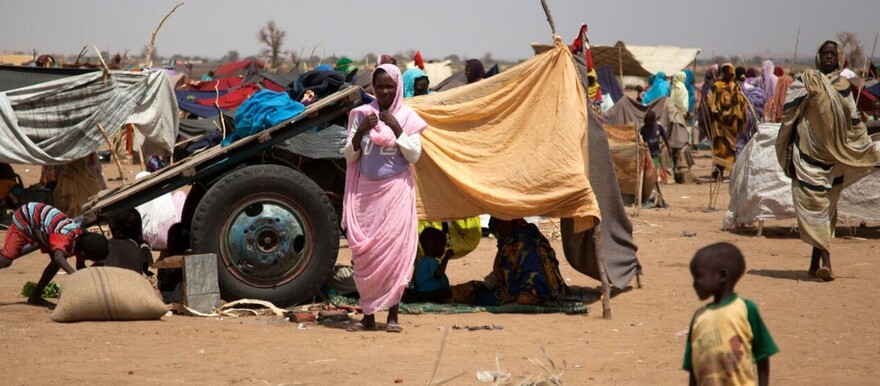A Sudanese human rights defender and member of Y-PEER said the situation of women and children in South Darfur State is witnessing a noticeable deterioration in all respects.
Y-PEER Network was established in Sudan in 2008 with the support of the United Nations Population Fund (UNFPA). Currently, the network targets issues related to peacebuilding, sexual and reproductive health, and gender-based violence (GBV).
It also carries out regular advocacy campaigns to ensure that the results of its work reach all the relevant stakeholders in Sudan to inform policy and interventions.
Mohla Adam Abdullah told Radio Tamazuj Wednesday that the conflict-affected people in South Darfur State, especially women and children, lack food, drinking and medical supplies.
She added, “Thousands of women and children live in the Beleil camp in Beleil locality, and they lack food, drinking water, and health supplies. Pregnant women lack healthcare, and there is also a lack of vaccination for newborn babies.”
Mohla pointed out that the Y-PEER Network has been creating awareness about rights, women’s participation in decision-making, and combating gender-based violence. However, she said the ongoing war is affecting most of their activities. “Now we are facing difficulties in working due to the war and lack of security in some areas of South Darfur,” she said.
She underscored that only peace talks and the negotiation table can end the ongoing war. She emphasized the importance of unifying all armed groups to create a national army charged with providing security to the people of Sudan.
The rights defender appealed to the international community to intervene immediately to resolve the crisis and pressure the warring parties to stop the “senseless” war.
Violence and displacement have escalated since fighting between the Sudanese army and the paramilitary Rapid Support Forces (RSF) erupted in April. Among the worst affected areas is the western region of Darfur, where ethnically motivated attacks have killed hundreds.
The United Nations said last week it was struggling to reach 18 million people in need in Sudan to fend off a humanitarian disaster, hampered by insecurity, interference from the warring parties, and a lack of international support.




